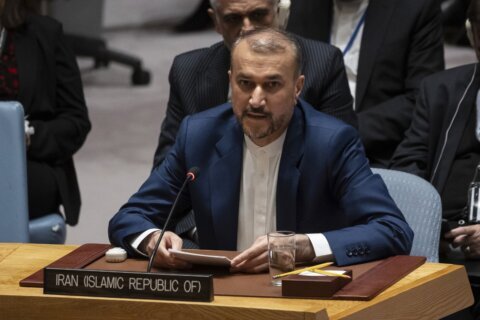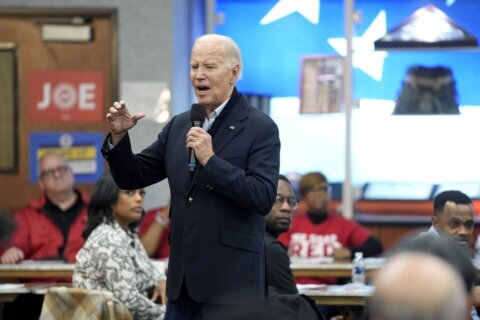CAIRO (AP) — A senior U.S. diplomat on Tuesday urged Sudan’s top general to restore the country’s civilian-led government as mediation efforts pressed on to resolve the civilian-military dispute that was capped by last week’s coup in the African nation.
U.S. Special Envoy for the Horn of Africa Jeffery Feltman said Gen. Abdel-Fattah Burhan should allow Prime Minister Abdalla Hamdok and his Cabinet to resume their work and release government officials and politicians detained in connection with the takeover.
Hamdok has been under house arrest since the military takeover, led by Burhan, though he has been allowed to meet with visiting foreign mediators. The general also dissolved the transitional government and detained many other government officials and political leaders in a coup widely condemned by the United States and the West.
Feltman said the coup “hijacked and betrayed the aspiration of the Sudanese people in a peaceful democratic country,” more than two years after a popular uprising forced the removal of longtime autocrat Omar al-Bashir and his Islamist government.
Burhan has claimed that the takeover was necessary to prevent a civil war, citing what he said were growing divisions among political groups. However, the coup came less than a month before he was to hand over some power to a civilian-run administration.
Feltman said Buran’s concerns should have been addressed through political means, according to the power-sharing deal between the generals and the pro-democracy movement that established the transitional government after al-Bashir’s ouster in 2019.
“Neither side can out-sideline the other. Both have important roles to play in the transition,” he told reporters in an online briefing from Washington.
The Oct. 25 coup came soon after Feltman left Sudan’s capital, Khartoum, following intensive talks with civilian and military leaders to resolve their frayed ties and mounting tensions over the course and pace of Sudan’s transition to democracy.
Feltman said Burhan and other military leaders engaged with him at the time “in bad faith.”
“They were talking to us how to address the concerns they had through the constitutional means, and instead, as soon as we left, they decided to just turn over the entire negotiating table in favor of military takeover,” he said.
Feltman said there are Sudanese initiatives to find a way out of the crisis, with the U.S., the U.N. and other international and regional actors engaging in these efforts.
Sudanese pro-democracy leaders, however, will likely demand “guarantees” to trust the power-sharing with the generals again after the takeover, Feltman said.
“The civilians feel burned by what their military partners did on Oct. 25th,” he said.
Pro-democracy groups have called for mass protest marches across the country to press demands for re-instating the deposed transitional government and releasing senior political figures.
Tens of thousands of Sudanese took to the streets across the country Saturday, in the largest protest yet since the coup. Three protesters were killed and dozens injured — several by live rounds — when security forces opened fire in several locations.
Copyright © 2024 The Associated Press. All rights reserved. This material may not be published, broadcast, written or redistributed.







